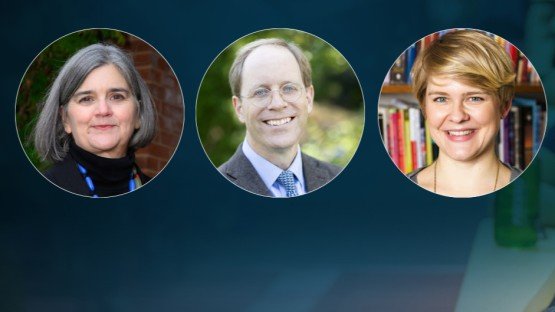Navigating the Landscape of Generative AI in Academia
Since the surge of generative AI in late 2022, educators at institutions like Cornell University have been grappling with complex challenges posed by this technological revolution. Questions have emerged regarding its effect on assessments, critical thinking, creativity, and the broader academic experience. The dialogue surrounding these issues will take center stage at the upcoming event, “Academic Integrity and Artificial Intelligence: Strategies for Responding,” organized by the Provost’s Working Group on Innovation in Assessment (PWGIA). Scheduled for November 12 from 2:00 to 3:15 p.m. in Rm. G64, Kaufman Auditorium, Goldwin Smith Hall, this gathering aims to reimagine the role of technology in teaching and learning.
Rethinking Assignments
Rob Vanderlan, the executive director of the Center for Teaching Innovation (CTI), points out that the advent of AI has prompted faculty members to rethink their assignment strategies. Many are eager for innovative ideas that can integrate students’ motivations to learn with the demands of meaningful engagement. This ongoing re-evaluation presents an opportunity to design assignments that not only challenge students academically but also inspire them to delve deeper into their learning processes.
Promoting Student Responsibility
One of the focal points of the upcoming event will be “AI and Academic Integrity.” M. Elizabeth Karns, provost fellow and senior lecturer at the Cornell Ann S. Bowers College of Computing and Information Science, will deliver a keynote address. Here, she will share essential guidelines and actionable advice aimed at fostering student responsibility. Her approach underscores the importance of effective communication between faculty and students regarding expectations around generative AI and academic integrity.
A Panel Discussion on Ownership and Accountability
Following the keynote, a panel discussion will engage participants in a thoughtful conversation about student ownership of learning. Attendees will hear from prominent faculty members like Tim Riley, professor of mathematics and active learning initiative director, and Kate Navickas, senior lecturer in the John S. Knight Institute for Writing in the Disciplines. This liveliness will open the floor for question-and-answer sessions, allowing for an interactive exchange of ideas between the faculty and audience.
Innovative Approaches to Assessment
Riley and Navickas will share their personal experiences in crafting a culture of accountability in their classrooms. Riley, for instance, has restructured his grading methods in his Introduction to Analysis course. Moving away from traditional assessments like finals and prelims, he now requires students to maintain a homework portfolio, supplemented by quizzes that can be retaken to improve scores. This shift reflects a growing recognition that learning should be an iterative process, rather than a one-time evaluation.
On the other hand, Navickas employs a labor-based grading contract in her First-Year Writing seminar. This approach emphasizes recognizing the efforts students put into revising their work rather than merely assessing the final output. By integrating scaffolding and reflection throughout the semester, she encourages students to critically evaluate their writing and understand the iterative nature of the writing process.
Exploring Generative AI Policies and Student Responses
The event will also open a discussion about formal and informal policies concerning generative AI and academic integrity within courses. Faculty will share insights into how students have interacted with their course policies and the diverse assessment strategies employed. Such dialogues are essential as they can inform future best practices in integrating technology responsibly in learning environments.
A Commitment to Innovative Assessment
This event is part of the ongoing efforts spearheaded by the PWGIA, an initiative dedicated to exploring alternative and authentic assessment forms. Recently, the group welcomed a cohort of ten new faculty fellows for the 2025-2026 academic year to further this mission. Additionally, new case studies showcasing innovative assessment methods implemented in Cornell courses in the past year are available, highlighting the commitment to fostering creativity and integrity in the academic sphere.
Open Invitation for Academic Engagement
The “Academic Integrity and Artificial Intelligence: Strategies for Responding” event is designed for Cornell faculty and graduate students, providing an invaluable platform for sharing ideas and developing strategies that address the complexities introduced by generative AI. By engaging in this conversation, participants can contribute to an evolving academic landscape that prioritizes integrity, creativity, and meaningful learning experiences.





